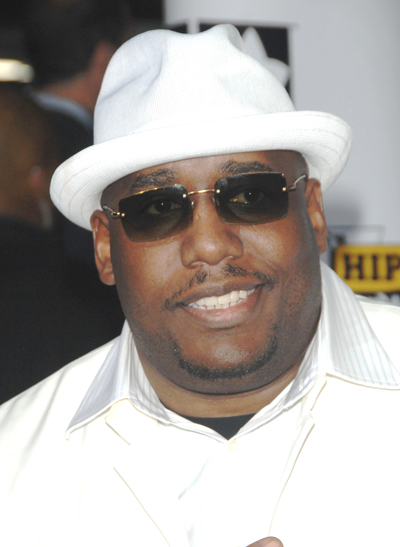
Kool Moe Dee arrives at the 4th Annual VH1 Hip Hop Honors ceremony at the Hammerstein Ballroom in New York, Thursday, Oct. 4, 2007. (AP Photo/Peter Kramer)
Harlem native Mohandas “Kool Moe Dee” DeWese is best remembered for his ever-present hats and shades, but it’s his resistance to hip-hop clichés which fortifies his legacy. Anti-drugs and alcohol and pro-education, Moe was always willing to represent bold views in his music and in interviews.
“For me, I don’t play into that,” explained the rapper. “We let the nuance dictate to the essence [where] up is down; down is up. Who spread the memo around the ’hood that being dumb was cool? That’s part of the reason I named myself ‘Kool’ — how is it intelligence, doing your homework and knowing your lessons not be cool?”
DeWese demonstrated his lyrical complexity as a teen, when as a member of the groundbreaking Treacherous Three he created a new, fast-paced style of rhyming that was ultimately emulated by rap superstars like Twista and Busta Rhymes. As a solo artist, he ruled the charts and the clubs with hits like “Wild, Wild West” and “I Go to Work.” On the upcoming episode of TV One’s “Unsung,” and with help from friends and admirers, including Doug E. Fresh, Melle Mel and Teddy Riley, Kool Moe Dee tells his life story, but warns that there are vital portions on the cutting room floor.
“When you’re not in charge of telling your story, you get the version that whatever producers or network execs want to tell,” explained DeWese. “I finally saw the rough cut, and the angle that they are choosing to go is underwhelming, because I know what it is and I lived it. The unfortunate part is that the infrastructure, the capitalism and business is set up, it almost inadvertently (and sometimes maybe even overtly) pits the artist against the industry, or having a gripe with some form of media or something in that space. What they do, or what they have to do — or at least what we’re taught and told they have to do — is play to the lowest common denominator: sensationalize, titillate, exaggerate to get viewership … So, we keep trading the content side off, just for the viewership. Of course, there is the humble side that is happy to be called, but I knew going in because it is one of my favorite shows. But I don’t smoke, drink or don’t have any drug issues, so there no ‘rise-and-fall’ stuff, so where are they going to get the drama they need to do the story.” Moe then imitates an announcer: “And then he lost it all!” To which he quickly responds: “No, I didn’t!”
In addition to being a groundbreaker in a new music genre (DeWase was one of the first rappers to earn a Grammy Award and was the first rapper to perform at the Grammys), a career standout was his lyrical assault on rival LL Cool J with “How Ya Like Me Now.”
“Some of his context was extremely juvenile and was counterproductive in terms of what I call social impact,” explained DeWese. “I thought it was socially irresponsible to say I am only 18 and I’m making more than your pop. You don’t tell a group of young Black boys that are idolizing you that you’re better than their fathers because you’re making more money than them; that is detrimental on more levels than you can’t even imagine. He was 16 when he started. Your wisdom comes at the state that it comes at, so everybody’s learning style is a little different. Some people need to learn by getting whipped on, so I just pull out my belt and do a little whipping — let me show you what mastery is if you’re going to talk that kind of stuff.”
DeWese (a lifelong bachelor) is currently working on a romantic tell-all entitled, “1,000 Kisses” and is the author of the critically acclaimed 2003 music guide, “There’s a God on the Mic: The 50 Greatest MCs.”
“(With) LL Cool J, like I said in the book, never underestimate the power of women,” observed DeWese. “He had an intangible in his equation that very few emcees/rappers have: a fan fare where ladies love what you look like, and the whole sexual chemistry, he had the whole ‘ladies’ man aspect. When you captivate women you are going to have success in this business. I thought that it wasn’t just that he was a ladies; man, he was one of the best lyricists of his era, without question. The book is called ‘The 50 Greatest,’ and he’s one of the greatest, without question.”






